Tech
Smart Bangladesh to take the Country to a Next Tech Hub in Asia
Published
3 years agoon

By Zunaid Ahmed Palak
In the last decade, Bangladesh has shown the world how revolutionary progress can be achieved through building a Digital Bangladesh vision as dreamt by our visionary leader Prime Minister Sheikh Hasina. It has now embarked on a task to build a Smart Bangladesh to take the country to a next tech hub in Asia.
Just a decade ago, Bangladesh had to import all the smartphones to meet the demands of the country’s growing smartphone users. Now, Samsung, one of the world’s biggest producers of smartphones, manufactures its latest high end devices in Bangladesh.
Since 2021, Samsung started manufacturing its Galaxy S21 Ultra 5G phones in Bangladeshi plants. In the US, this phone costs USD 1199.99 and if imported its cost would be more than BDT 166,000. Thanks to local assembling plants, Bangladeshi customers could purchase this phone at only BDT 119,000.
Not only Samsung, various companies such as Walton, Vivo, Oppo are also producing high-end smartphones in Bangladesh. In 2022, locally manufactured and assembled phones met more than 52 percent demand of smartphones.
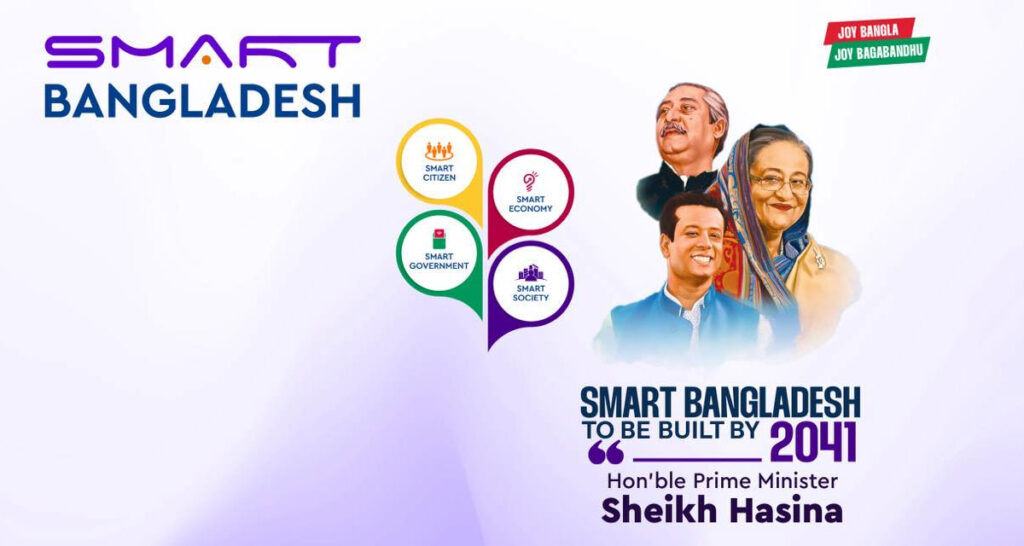
The secret behind such astounding transformation in the last few years is the current governments special focus on expanding ICT and heavy industries. Now the governments priority in this sector has been impeccably explained in its Smart Bangladesh vision.
Smart Bangladesh Vision 2041 as announced by Prime Minister Sheikh Hasina, Bangladesh is expected to achieve zero percent poverty, 100 percent high speed internet accessibility, 100 percent more than 5G smartphone penetration and 100 percent inclusive, circular and cashless economy and expansion of ICT based green industries by 2041. Besides, all the government services will be delivered electronically, government offices will be completely paperless and citizens will live in an absolutely inclusive, empowered and self-sufficient society.
The Bangladesh started journey towards Digital Bangladesh back in 2009 when the current ruling party Awami League came into power. There was no ICT ecosystem at that time. There were no government services that could be delivered electronically. Only 1 percent of the citizens had internet connection. There were only around 50,000 IT professionals in the entire country. And, export revenue from ICT based industry was only 26 million USD. But the fact of the matter is: under the prudent and dynamic leadership of Prime Minister Sheikh Hasina, the government has radically transformed the ICT ecosystem and built Digital Bangladesh over the last decade. Government has digitized 2 thousand services to citizens access to it. Out of 170 million people 130 million people have stable internet connection. Bangladesh currently earns over 1.4 billion USD annually by exporting ICT related services.
The Bangladesh government has implemented this massive transformation by establishing a safe and friendly investment ecosystem for the investors and entrepreneurs. The government has been providing attractive incentives for investors to expand the emerging ICT industry of the country. For instance, IT companies can enjoy 10 years of corporate tax exemption and if they invest in one of the Hi-tech parks established by the government, the duration of corporate tax exemption can be 12 years. Expatriate professionals working in Bangladesh’s ICT industry are exempted from income tax. Import duties for the investors or entrepreneurs for importing capital machineries and other assets are exempted.
Besides these, the investors will enjoy exemption from VAT, double taxation, stamp duty, registration fee (if they want to purchase land) and 100 percent profit repatriation facility. If the investors or entrepreneurs invest in Hi-tech parks, they will also enjoy bonded warehouse facilities.
Such lucrative incentives have already created an unprecedented acceleration in Bangladesh’s emerging ICT market. In the last five years, more than 2500 startups have been established in the country and around 200 ICT startups are entering the market every year.
There are currently more than 400 companies in Bangladesh who achieved funding by renowned international investors such as Soft Bank Group, Bill and Melinda Gates Foundation, Adventure Capital and many others.
Thanks to these investments, more than 2 million jobs have been created in Bangladesh’s ICT industry in the last decade. In fact, Bangladesh has reached a global milestone in expanding its ecommerce and digital financing. At present, Bangladesh boasts of 181 million users of mobile phones making it the 9th largest mobile market of the world.
There are more than 188 million subscribers of mobile financial services (MFS) who are doing 14 million transactions every day. Bangladesh’s MFS such as BKASH and Nagad (state owned) have earned many national and global recognitions for their innovative and committed customer services. Since 2011, MFS are growing in Bangladesh at an astounding 500 percent growth rate.
Like MFS, Bangladesh’s ecommerce market is also a hidden treasure for potential investors. Global players like Alibaba, Daraz and various national level startups have already created a 3 billion USD ecommerce market in the last five years. However, this is only 35 percent of the total market size and within the next two years the market can be expanded to address the demands of 80 percent of its consumers.
Bangladesh has also achieved a major breakthrough in expanding its digital device market. Even in the last decade, Bangladesh had to import almost all of the electronic products. However, nowadays Bangladesh has become an emerging exporter of electronic products manufactured in Bangladesh.
The country has created a 2.4 billion USD market of electronic devices and annual growth of the market is 29.3 percent. Walton, a Bangladeshi brand has been exporting home appliance electronics and heavy machineries for almost a decade. Products of globally renowned brands like Samsung and Sony are now being assembled in Bangladesh.
In the near future, Bangladesh is going to be a big player in the global semiconductor industry. Bangladeshi researchers in collaboration with their American counterparts have developed semiconductors which have the highest operational temperature of 300 degree celsius, more than double that of conventional semiconductors.
Bangladesh government has allocated 10 million USD to establish Nano Lab to conduct fundamental research on semiconductors in Bangladesh. Besides, four Bangladeshi companies are already producing electronic chips and exporting them to different countries as well. More than 1000 trained Bangladeshi engineers are working in these companies. The government is now giving 10 percent export incentive for electronic chip exporting companies. If the current rate of growth continues, It is expected that Bangladesh will create a 20 billion dollar semiconductor industry by 2041.
Such outstanding progress in the ICT industry has been possible due to Bangladesh governments remarkable attention on creating skilled manpower in the ICT sector.
The ICT division has been providing a wide range of ICT training to millions of youths, particularly women all over the country to become freelancers and skilled IT professionals. Many of these trained youths have later become successful entrepreneurs, freelancers and IT professionals.
Bangladeshi freelancers are earning 400 million USD annually through their skilled and cost-effective services. According to Oxford Internet Institute (OII) and World Bank reports Bangladesh’s position in the online labour forces is second. From 2010-2018, income growth of the IT professionals was around 10 percent, however, from 2019 to till now, the growth rate has increased up to 40 percent.
Utilization of these ready to deploy resources can only be possible if the government can attract foreign direct investments and young entrepreneurs in the country’s rapidly emerging ICT sector. And, Prime Minister Sheikh Hasina’s government is more than ready for them.
Our next goal is to develop a smart economy within next five years where we shall be able to establish a 100 percent cashless, circular economy. To achieve this goal, we would provide support to develop at least 5 unicorn startup companies (USD 1 billion company each). We have also planned to develop 50 unicorn startup companies by 2041. Our government will do everything possible to attract investors and entrepreneurs to invest in this sector and they will be the key players in realizing our dream of Smart Bangladesh.
Bangladesh has a massive pool of millions of skilled youths, all the necessary infrastructure and extremely conducive environment for young entrepreneurs and large scale investment as well. The initiatives taking by the present Government is the line with the Smart Bangladesh vision there is no doubt that Bangladesh is going to be the next tech hub in Asia and beyond.
The writer is Honble State Minister for ICT Division Zunaid Ahmed Palak. e-mail: me@palak.net.bd
You may like
-


July Uprising: Anisul and Salman Jail Sentences in Omar Murder Case
-
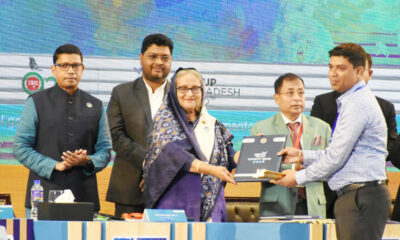

Mobarak Hossain gets Smart Bangladesh Award 2023
-
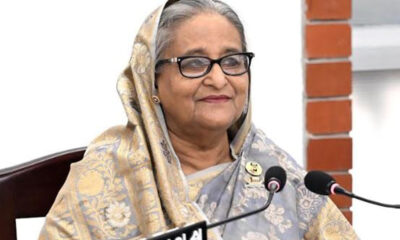

PM urges all parties to participate in national polls
-


Momen: Regional stability, loans to feature Sheikh Hasina-Xi Jinping meeting
-
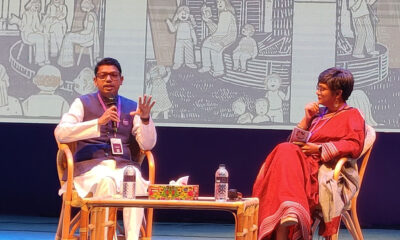

Bangladesh has turned into a technology-based economy: Palak
-
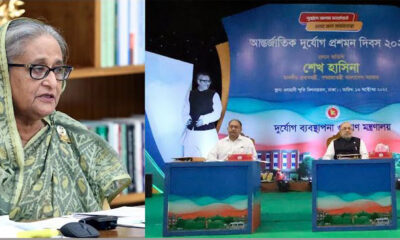

Be aware, so any irresponsible person doesn’t come to power: PM
Tech
From Confusion to Clarity: Dheow’s Book Helps Users Master ChatGPT Conversations
Published
3 months agoon
November 10, 2025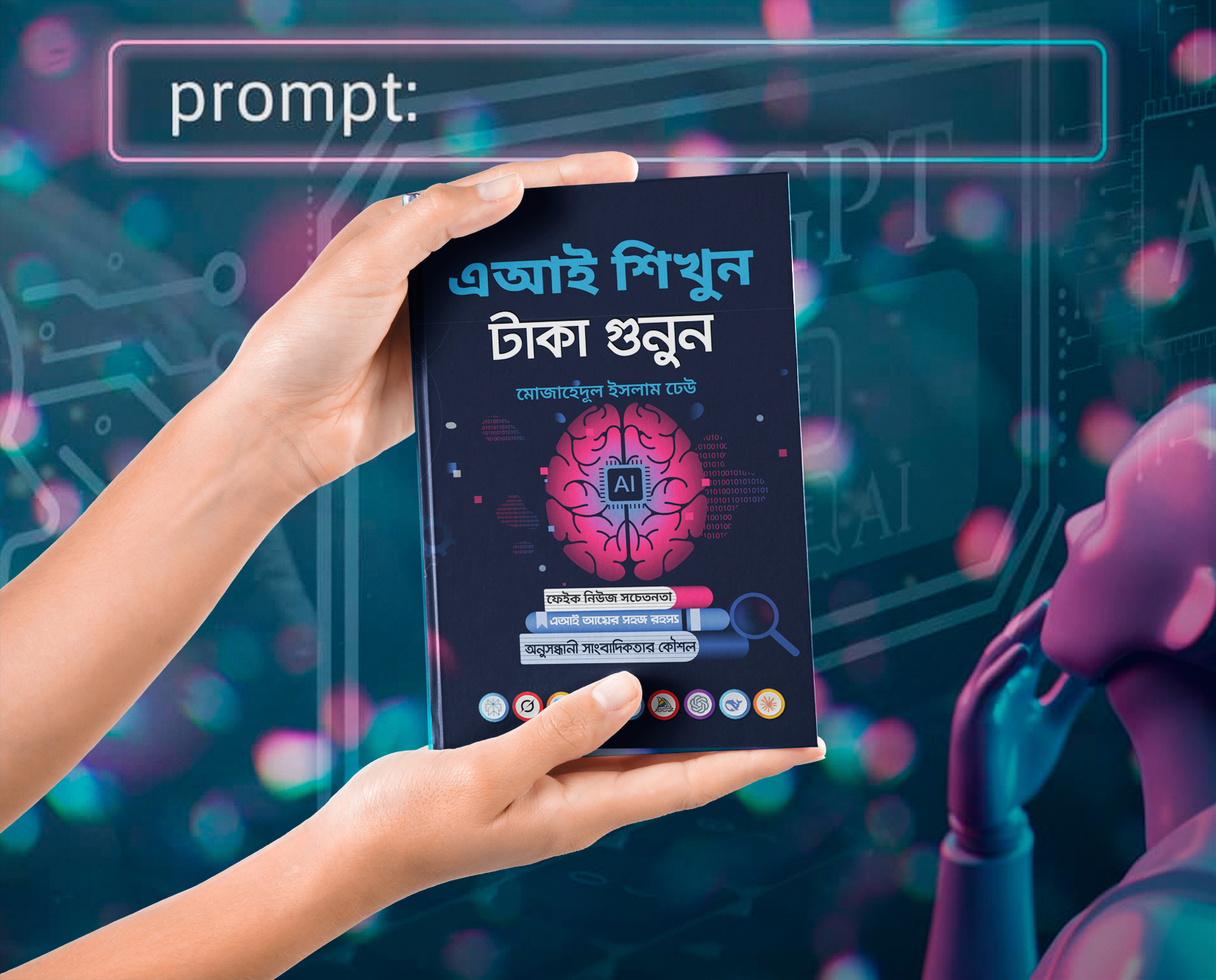
The much-anticipated book ‘AI Shikhun Taka Gunun’ (Learn AI, Count Money) by ICT writer and journalist Mojahidul Islam Dheow has officially hit the shelves. According to Systech Publications, the book received an overwhelming response even before its release, with more than 1,600 pre-orders placed within the very first week through platforms like Rokomari.com, Prothoma, and other online stores. It is now available at bookstores across Bangladesh, including Systech’s outlet in Banglabazar, Dhaka, at a printed price of Tk 400.
In today’s fast-changing digital world, we stand at a crossroads where a single keystroke can open the door to new income opportunities. Artificial Intelligence (AI) has become humanity’s newest coworker—reshaping how we live, learn, and earn. Mojahidul’s latest book builds a bridge from learning to earning, connecting investigative journalism with public awareness and guiding readers toward practical uses of AI for creativity, innovation, and income generation.
The book is thoughtfully divided into three major parts. The first part serves as an income guide for young learners, showing them how to use AI prompts and tools to find freelance work, generate creative ideas, and turn them into profitable ventures. The second part functions as an investigative toolkit for journalists, offering hands-on advice on data mining, source verification, and cybersecurity using AI applications. The third part caters to general readers, simplifying the complex world of AI and explaining its opportunities and risks in easy, everyday language—from detecting deepfakes and misinformation to understanding how AI is transforming modern life.
Within its chapters, the author introduces over 150 AI tools across more than 30 categories, helping readers explore the most effective AI resources for any purpose—whether for business, work, or personal development. The book highlights tools for AI assistance, video and image generation, automation, meetings, and research. It also discusses AI-powered writing, design, and app-building platforms, alongside innovative AI search engines. Readers will find valuable insights into AI tools for knowledge management, email automation, scheduling, presentations, and even résumé creation. Mojahidul further explores creative fields such as AI-generated voice and music, as well as marketing innovations that promise to revolutionize both productivity and imagination in the digital age.
Md. Mojahidul Islam Dheow, a computer science graduate, has been an active voice in ICT writing since 2003 and has authored over a dozen books. His title Web Database Application: MySQL-PHP was the first Bangla-language book on web database and application development, earning him the Bestseller Award in 2021. His writing style is lively, accessible, and deeply engaging—sometimes technically detailed, sometimes playfully conversational. Reading his work feels like chatting with a tech-savvy friend who’s eager to share smart digital tricks over a cup of coffee.
There are plenty of reasons to read AI Shikhun, Taka Gunun. Whether you’re a beginner looking to start freelancing, a journalist interested in mastering AI-driven investigative tools, or a curious reader eager to understand how AI is reshaping everyday life, this book speaks to all audiences with equal clarity and enthusiasm. Ultimately, Learn AI, Count Money is more than just a book—it’s a complete roadmap for thriving in the era of artificial intelligence.
Speaking about his new release, Mojahidul Islam Dheow shared his vision for the book:“This book reveals countless ways to earn through AI. You can use AI content tools to offer writing services, manage brands and social media accounts, or provide AI-powered SEO solutions. You can even build and sell your own custom GPTs! If you’re creative, AI-generated art and images can become great sources of online income. Similarly, AI-driven affiliate marketing, ad management, and optimization are becoming increasingly popular.
Many people struggle to find the right prompts that bring out useful and engaging responses from ChatGPT. It can be frustrating to spend time crafting questions only to get results that miss the mark. That’s where this guide comes in. In this book, I’ve compiled a collection of over 500 effective prompts designed to spark creative and insightful responses. For example, if you’re writing about travel, instead of asking, ‘Tell me about traveling,’ try, ‘Describe a perfect day in Paris, from breakfast to dinner.’ The same logic applies to IT support—rather than asking, ‘How do I fix my computer?’ ask, ‘How can I speed up my Wi-Fi on Windows 11?’ The more specific your prompt, the clearer and more helpful the answer will be.
Translation and localization services powered by AI also open up easy income opportunities. You can create and sell digital products, offer AI tutoring, or launch online courses. Building AI-powered websites, managing email campaigns, developing chatbots or mobile apps—even automating lead generation—AI offers endless possibilities. Finally, AI is now an incredible assistant in data collection, management, and analysis. You can even generate AI-based video content and monetize it on video platforms.”
Through AI Shikhun, Taka Gunun, Mojahidul Islam Dheow once again proves his mastery in blending technology with practical wisdom. His latest work doesn’t just teach readers about AI—it empowers them to turn knowledge into action, and curiosity into income, in the exciting new world of artificial intelligence.
Tech
Pre-Orders Open for Mojahidul Islam’s Latest Computer Book ‘AI Shikhun, Taka Gunun’
Published
5 months agoon
September 12, 2025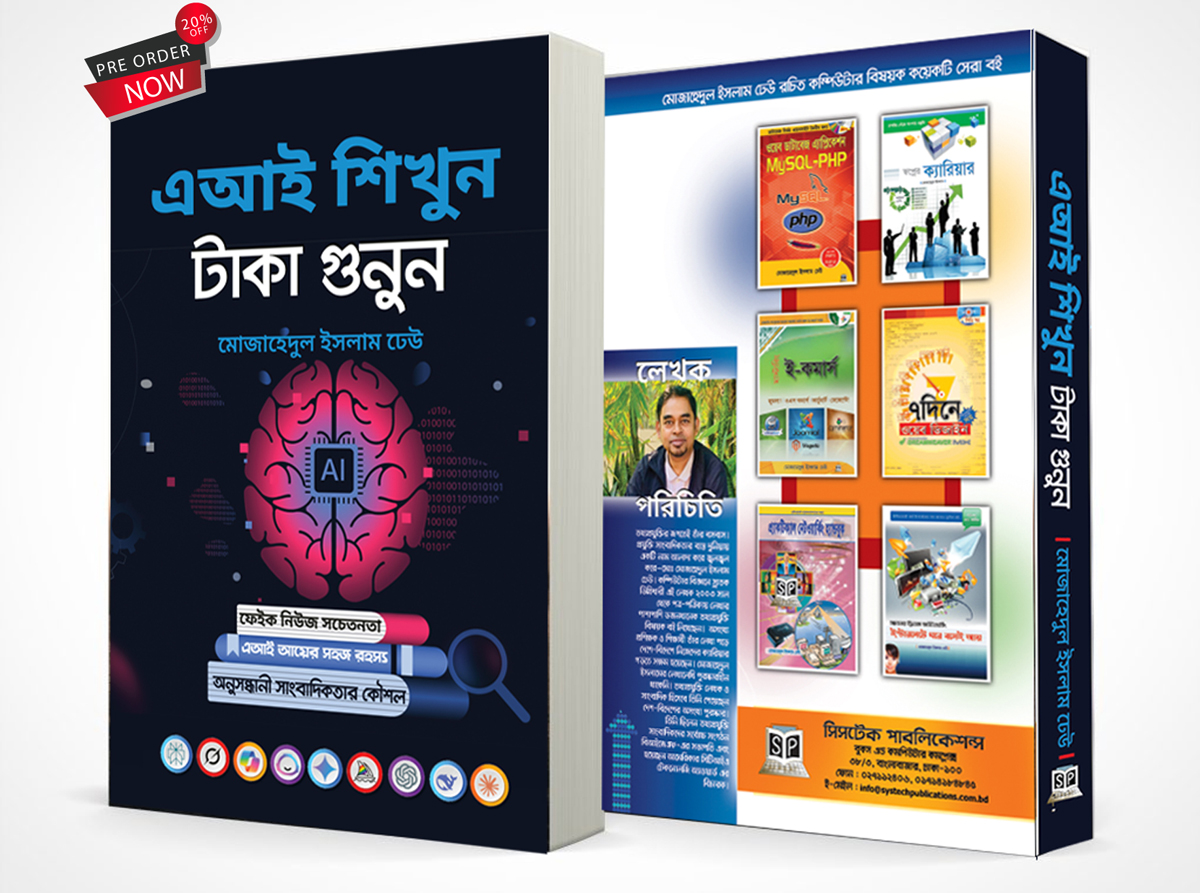
Technology writer and journalist Mojahidul Islam Dheow is set to release his new book, “AI Sikhun, Taka Gunun.”
Online pre-orders have already started, and the book is being published by Systech Publications.
In today’s digital age, we stand at a turning point—where simple keystrokes can turn into dollars, and Artificial Intelligence (AI) is becoming humanity’s newest coworker.
This book acts as a bridge, connecting learning with earning and blending investigative journalism with awareness-raising for general readers. The book is structured into three parts.
The first section is designed as an earning guide for young people. It explains how AI content prompts can create opportunities in the freelancing market and how small ideas can grow into significant income streams.
The second section serves as a hands-on investigative handbook for journalists, offering practical tips on using AI tools for data mining, verifying sources, and ensuring cybersecurity.
The third section is aimed at general readers. It presents the opportunities and risks of AI in simple language while also teaching methods for spotting deepfakes and identifying fake news.
Mojahidul Islam Dheow, a Computer Science graduate, has been writing and publishing technology-related books since 2003, with more than a dozen titles to his name.
His book “Web Database Application: MySQL–PHP” was the first Bangla-language book on website database and application development, earning him the Best Author Award in 2021. Dheow’s writing style is lively and accessible—sometimes deeply technical, sometimes witty and lighthearted. His words make readers feel as though they are casually learning new hacks while chatting with a friend.
This book is equally valuable for three key audiences: those who want to start freelancing but don’t know how to begin, journalists eager to learn the magic of AI-powered data tools, and everyday readers curious about how AI is reshaping our daily lives.
All in all, “AI Sikhun, Taka Gunun” is not just another book—it is a complete roadmap for surviving and thriving in the age of AI.
According to the author, the book will help readers discover numerous exciting ways to earn with AI. These include offering writing services with AI content tools, managing brands and social media accounts, providing AI-powered SEO services, creating and selling custom GPTs, producing AI-generated art and images, affiliate marketing, optimizing paid advertising, offering translation and localization services, developing and selling AI-powered digital products, teaching and hosting online courses, building websites and running email marketing campaigns, creating AI chatbots for businesses, developing mobile apps, automating lead generation, managing and analyzing data, and even producing AI-powered YouTube content.
The printed price is 400 Taka. If pre-ordered, the book can be purchased at a 20% discount for 320 Taka at https://www.rokomari.com/book/504542/ai-shikhun-taka-gunun.
Tech
A10 Networks Expands its Cybersecurity Portfolio with Acquisition of ThreatX Protect
Published
11 months agoon
March 13, 2025
ThreatX Protect Addresses Critical Need to Protect Against Evolving Application and API Security Threats
To continue to help customers address the rapidly evolving cyber threat landscape, A10 Networks has acquired the assets and key personnel of ThreatX Protect expanding its cybersecurity portfolio with web application and API protection (WAAP). The acquisition is expected to be modestly accretive to A10’s earnings per share in 2025 and has closed.
Attacks against web applications and application programming interfaces (APIs) are on the rise and are a significant threat to enterprises. ThreatX Protect provides a unique WAAP solution using behavioral and risk profiling to help protect enterprises from evolving threats, including threats to AI applications, which can complement an AI firewall. Delivered as a software-as-a service solution, ThreatX Protect includes API protection, bot management and next-generation web application firewall.
“Expanding the A10 Defend security portfolio with ThreatX Protect gives our customers an additional tool in their strategy to protect against new and evolving threats,” said Dhrupad Trivedi, president and CEO, A10 Networks. “Our strategic focus is on helping enterprises secure their applications and networks from the growing number of threats today, as well as protecting the emerging AI use cases of the future. Adding WAAP to our solution set gives customers additional capabilities to help establish a strong security posture.”
“We are thrilled that A10 Networks has acquired certain assets of ThreatX, including the brand and the TX Protect WAAP solution to expand A10’s security portfolio,” said Gene Fay, CEO of ThreatX. “A10 has been a fantastic partner throughout this process, and we are confident that our customers and employees will thrive under their leadership.”
As a result of this transition, the remaining assets of ThreatX will be launched as Run Security with TX Prevent, the cutting-edge eBPF-based solution re-launched as RS Prevent.
ThreatX Protect supports A10’s strategy of helping customers deploy A10 security solutions in a hybrid approach to protect apps and APIs running anywhere – public cloud, private cloud, co- location facilities or on-premises. The A10 Defend portfolio of solutions provides DDoS protection, DDoS threat intelligence and web application, and now adds a full-featured WAAP solution all integrated into a single platform with end-to-end delivery and stronger security for mission-critical applications.
Specific terms of the transaction were not disclosed. The acquisition is consistent with A10’s stated strategy of expanding the Company’s security portfolio to grow in the enterprise market. The acquisition does not represent a material change to the Company’s 2025 financial outlook or long-term business model.

From Confusion to Clarity: Dheow’s Book Helps Users Master ChatGPT Conversations

Pre-Orders Open for Mojahidul Islam’s Latest Computer Book ‘AI Shikhun, Taka Gunun’

Bangladesh’s Press at a Crossroads: Between Promises of Reform and the Shadows of Repression










